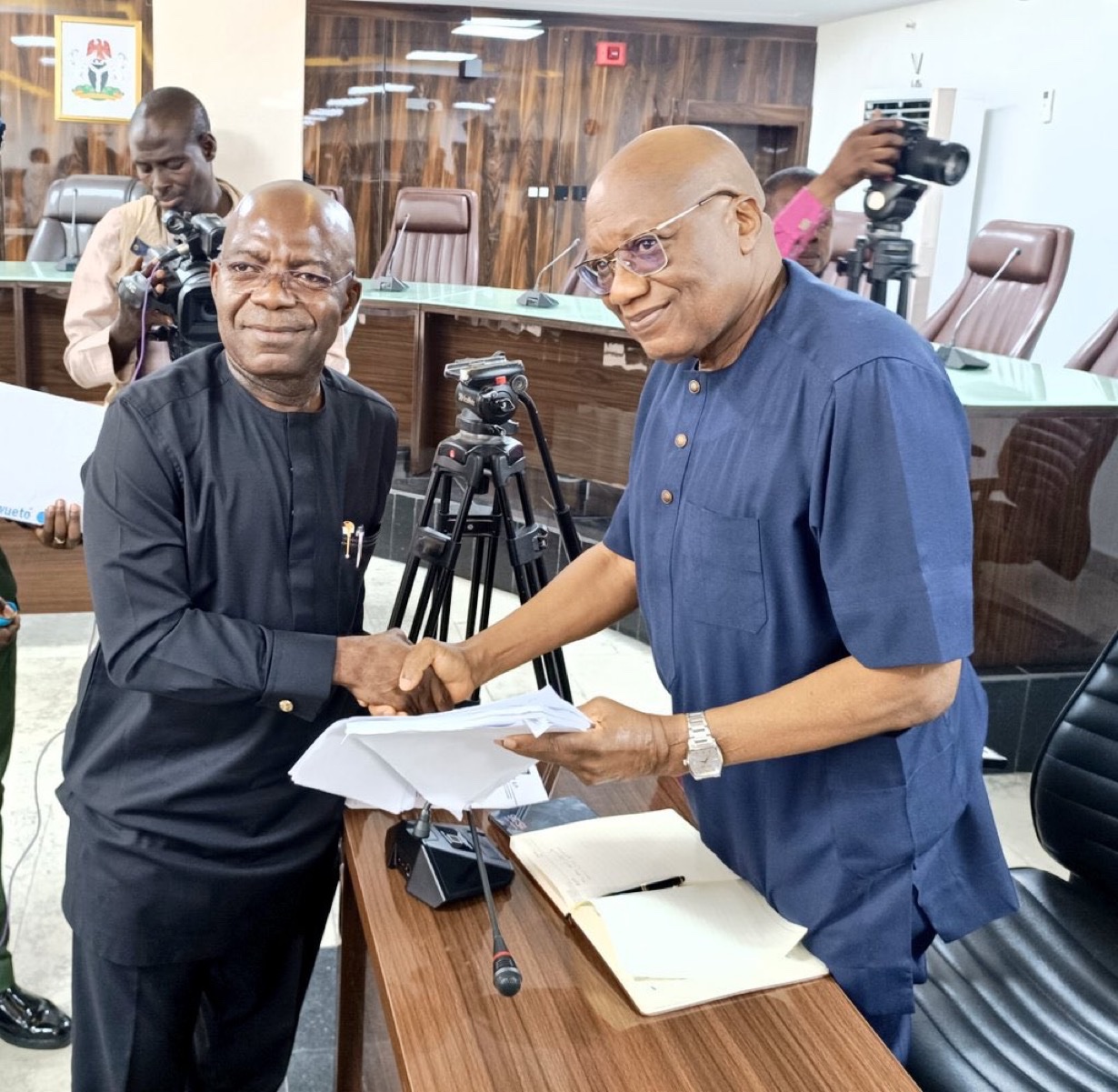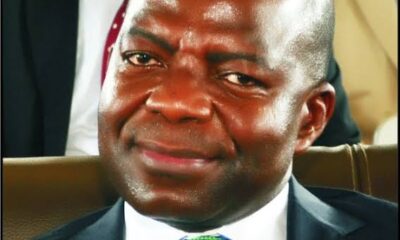Politics
Labour Party Delegation Led by Abia Governor Alex Otti Meets INEC to Present Supreme Court Judgment on Party Leadership

A delegation from the Labour Party (LP), led by Abia State Governor Dr. Alex Otti, met with officials of the Independent National Electoral Commission (INEC) on Tuesday, April 9, 2024, to formally present a recent Supreme Court judgment affirming the authentic leadership of the party. The meeting took place at INEC headquarters in Abuja and was aimed at resolving ongoing disputes about the legitimate leadership within the Labour Party.
Governor Otti, who played a prominent role during the visit, emphasized that the purpose of the engagement was to clarify the party’s position and ensure that the electoral body is properly guided by the highest court’s ruling. The Supreme Court judgment, delivered earlier in the year, had upheld the leadership of the party under the chairmanship of Barrister Julius Abure.
The legal battle over the control of the Labour Party had generated internal conflict and confusion, particularly with competing claims from different factions. The most significant of these came from Lamidi Apapa, who had laid claim to the position of acting national chairman following a suspension notice issued against Abure by a group within the party.
However, the Supreme Court ruled in favor of Abure, determining that the processes leading to his purported suspension did not follow due procedure and were therefore null and void. The ruling effectively reaffirmed Abure’s status as the national chairman and invalidated attempts by the Apapa-led faction to represent the party at national and legal levels.
During the meeting with INEC, Governor Otti was accompanied by several senior officials of the Labour Party, including members of its National Working Committee (NWC). The group submitted certified copies of the Supreme Court judgment to INEC’s legal department and urged the commission to recognize only the leadership endorsed by the court.
Otti explained that the action was necessary to put an end to ambiguity and ensure that the party’s operations, including preparations for future elections, are not undermined by internal disputes. He reiterated that the Labour Party remains committed to democratic principles and the rule of law, and expects all stakeholders, including INEC, to respect judicial pronouncements.
INEC officials who received the delegation acknowledged the documents submitted and assured the visiting team that the commission would study the Supreme Court judgment closely. They noted that INEC’s role is guided by law, and any decision on party leadership must align with court rulings and constitutional provisions.
The meeting comes amid broader efforts by the Labour Party to reposition itself as a key political force ahead of future electoral contests, particularly following its performance in the 2023 general elections where it gained significant ground nationally. Party leaders have expressed concern that lingering leadership tussles could erode public trust and weaken internal cohesion if not resolved in line with the law.
In recent months, the party’s national secretariat has seen increased activity as Abure’s leadership seeks to consolidate its authority and rally support among members. This includes organizing party congresses, preparing for off-cycle elections, and strengthening administrative structures at the state and local government levels.
Tuesday’s visit to INEC is seen as a strategic move by the Labour Party to close a chapter on the leadership controversy and reinforce legal clarity in its dealings with electoral authorities. Governor Otti, speaking to reporters after the meeting, described the interaction with INEC as cordial and constructive.
He added that the Labour Party is focused on delivering good governance where it holds office and building a credible alternative to the ruling parties at the national level. Otti also called on all party members to unite behind the legally recognized leadership and work together to advance the party’s goals.
The Supreme Court’s decision is expected to serve as a binding precedent in similar intra-party disputes, reinforcing the importance of internal democracy and procedural compliance in political organizations.
With INEC now formally presented with the ruling, the expectation is that the commission will update its records and interactions with the Labour Party accordingly, thereby putting to rest any lingering uncertainty regarding its leadership.












